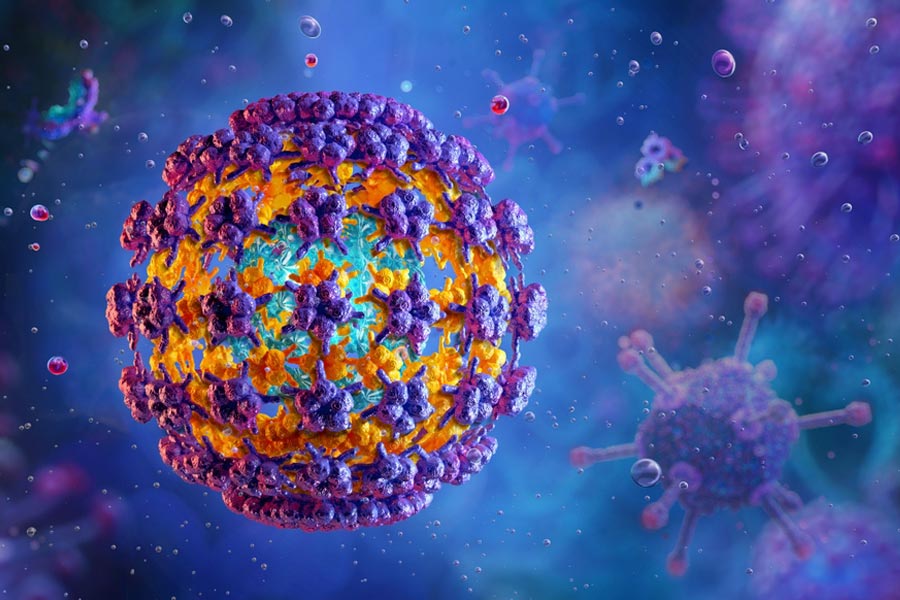Scientists have discovered and isolated the first live culture of the superbug Candida auris, a disease-causing fungus, from the ear canals of Delhi's stray dogs.
Pets could act as reservoirs for superbugs, potentially transmitting infections to humans, the researchers from Delhi University and McMaster University, Canada, said.
Candida auris (C. auris) is a drug-resistant, emerging fungus that can cause persistent and severe infections and widespread outbreaks in hospitals. The World Health Organization (WHO) has declared it one of the world's four 'critical priority' fungal pathogens.
The researchers analysed skin and ear swab samples, taken from dogs housed in one of Delhi's shelters, for bacteria and fungi cultures.
They found evidence of C. auris within the ear canals of four of the animals with chronic skin infections, using routine diagnostic protocols for skin and ear infections.
A DNA analysis revealed genomic similarities between some of the superbug strains found in the dogs and those found in humans, adding to the evidence of risk of infection spread to other animals and humans.
"Dogs are common pets. Even though C. auris was only found in stray dogs in this study, there are many stray dogs in many parts of the world. These dogs could act as transmission vehicles for C. auris to reach other animals and humans," said Jianping Xu, a professor in the Department of Biology at McMaster University and lead author of the study published in the Journal of Fungi.
The swab samples were taken from 87 dogs, 52 of which were strays under intensive care for severe skin lesions and 35 were household pets being treated for minor gastrointestinal and urinary infections.
However, the researchers said, these conditions were not related to the pathogen in question.
"We need to be vigilant in the surveillance of dogs, other domesticated pets and wild animals in regions where C. auris is endemic.
"While C. auris spreads easily from human to human, the route of transmission among animals or from animals to humans is much less clear and further investigation is required," said Xu.
C. auris has also been discovered on the surface of stored apples, in tidal marshes, in environments with extremely high salinity and, recently, in wastewater, suggesting it can survive in harsh conditions.
Except for the headline, this story has not been edited by The Telegraph Online staff and has been published from a syndicated feed.











